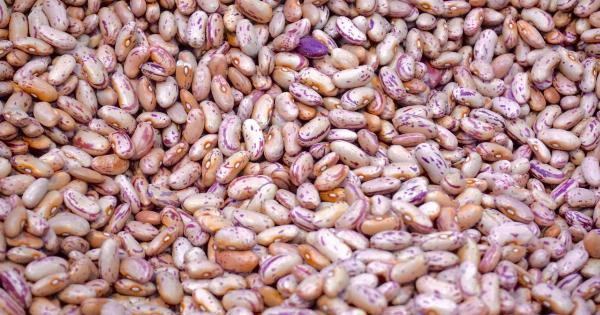Diabetes is a chronic condition that affects millions of people worldwide. It occurs when the body is unable to produce or use insulin effectively, leading to high blood sugar levels.
While genetics and lifestyle factors can contribute to the development of diabetes, diet plays a critical role in managing the condition. In this article, we explore the connection between food and diabetes and provide tips for individuals looking to improve their eating habits.
Understanding Diabetes and Its Causes
Diabetes is a metabolic disorder that affects the way the body processes glucose, a sugar that serves as the primary source of energy for cells.
In healthy individuals, the pancreas produces insulin, a hormone that regulates blood sugar levels by facilitating the absorption of glucose into the cells. However, in individuals with diabetes, the body doesn’t produce enough insulin or can’t use it properly, leading to high blood sugar levels (hyperglycemia).
There are two main types of diabetes:.
Type 1 Diabetes
Type 1 diabetes is an autoimmune condition that occurs when the body’s immune system attacks and destroys the cells in the pancreas that produce insulin.
This type of diabetes often develops in childhood or adolescence, although it can occur at any age. Individuals with type 1 diabetes require insulin injections to regulate their blood sugar levels.
Type 2 Diabetes
Type 2 diabetes is the most common type of diabetes, accounting for 90% of all cases. It occurs when the body doesn’t produce enough insulin or can’t use it effectively.
Type 2 diabetes typically develops in adulthood, although it is becoming more common in children and adolescents due to rising obesity rates. In addition to genetics, lifestyle factors such as diet and physical activity can contribute to the development of type 2 diabetes.
The Role of Diet in Diabetes
Diet plays a critical role in managing diabetes by helping to regulate blood sugar levels and prevent complications from the condition.
While there is no one-size-fits-all diet for individuals with diabetes, it is generally recommended that they follow a balanced, nutritious diet that is low in added sugars, saturated fats, and refined carbohydrates.
Carbohydrates and Diabetes
Carbohydrates are a type of macronutrient that is broken down into glucose in the body and is the primary source of energy for cells.
As a result, carbohydrates have the most significant impact on blood sugar levels, making them a crucial component of a diabetes-friendly diet. Complex carbohydrates, such as whole grains, fruits, and vegetables, are digested more slowly and do not cause a rapid rise in blood sugar levels.
In contrast, refined carbohydrates, such as white bread, pasta, and baked goods, are digested quickly and can cause a sharp spike in blood sugar levels. Therefore, individuals with diabetes should focus on consuming complex carbohydrates and limiting refined carbohydrates and added sugars.
Protein and Diabetes
Protein is another essential macronutrient that plays a role in regulating blood sugar levels.
High-protein diets have been shown to improve blood sugar control in individuals with type 2 diabetes by reducing insulin resistance and increasing insulin secretion. However, it is essential to consume lean protein sources, such as poultry, fish, nuts, and legumes, and avoid high-fat protein sources, such as red meat, processed meats, and full-fat dairy, which can increase the risk of heart disease.
Fats and Diabetes
Fats are an essential component of a healthy diet, but some types of fats can be harmful to individuals with diabetes.
Saturated and trans fats, found in animal products and processed foods, can increase blood cholesterol levels and increase the risk of heart disease, which is already elevated in individuals with diabetes. Therefore, it is recommended that individuals with diabetes limit their intake of these types of fats and focus on consuming heart-healthy fats, such as monounsaturated and polyunsaturated fats found in nuts, seeds, fatty fish, and vegetable oils.
Other Considerations for a Diabetes-Friendly Diet
In addition to consuming a balanced diet that is rich in complex carbohydrates, lean protein, and heart-healthy fats, individuals with diabetes should also consider the following:.
- Portion control: Eating large portions can cause blood sugar spikes, so it is crucial to monitor portion sizes and eat smaller meals more frequently.
- Glycemic index: The glycemic index is a measure of how quickly carbohydrates are absorbed into the bloodstream. Foods with a high glycemic index can cause blood sugar spikes, so it is essential to choose foods with a lower glycemic index, such as whole grains, fruits, and vegetables.
- Hydration: Drinking plenty of fluids, especially water, can help regulate blood sugar levels and prevent dehydration.
- Dietary supplements: Some dietary supplements, such as cinnamon, chromium, and alpha-lipoic acid, may help regulate blood sugar levels, although more research is needed.
The Bottom Line
Diet plays a crucial role in managing diabetes by helping to regulate blood sugar levels and prevent complications from the condition.
A balanced diet that is rich in complex carbohydrates, lean protein, and heart-healthy fats can help individuals with diabetes control their blood sugar levels and reduce their risk of heart disease. Additionally, portion control, monitoring the glycemic index of foods, staying hydrated, and considering dietary supplements may provide additional benefits for individuals with diabetes.




























